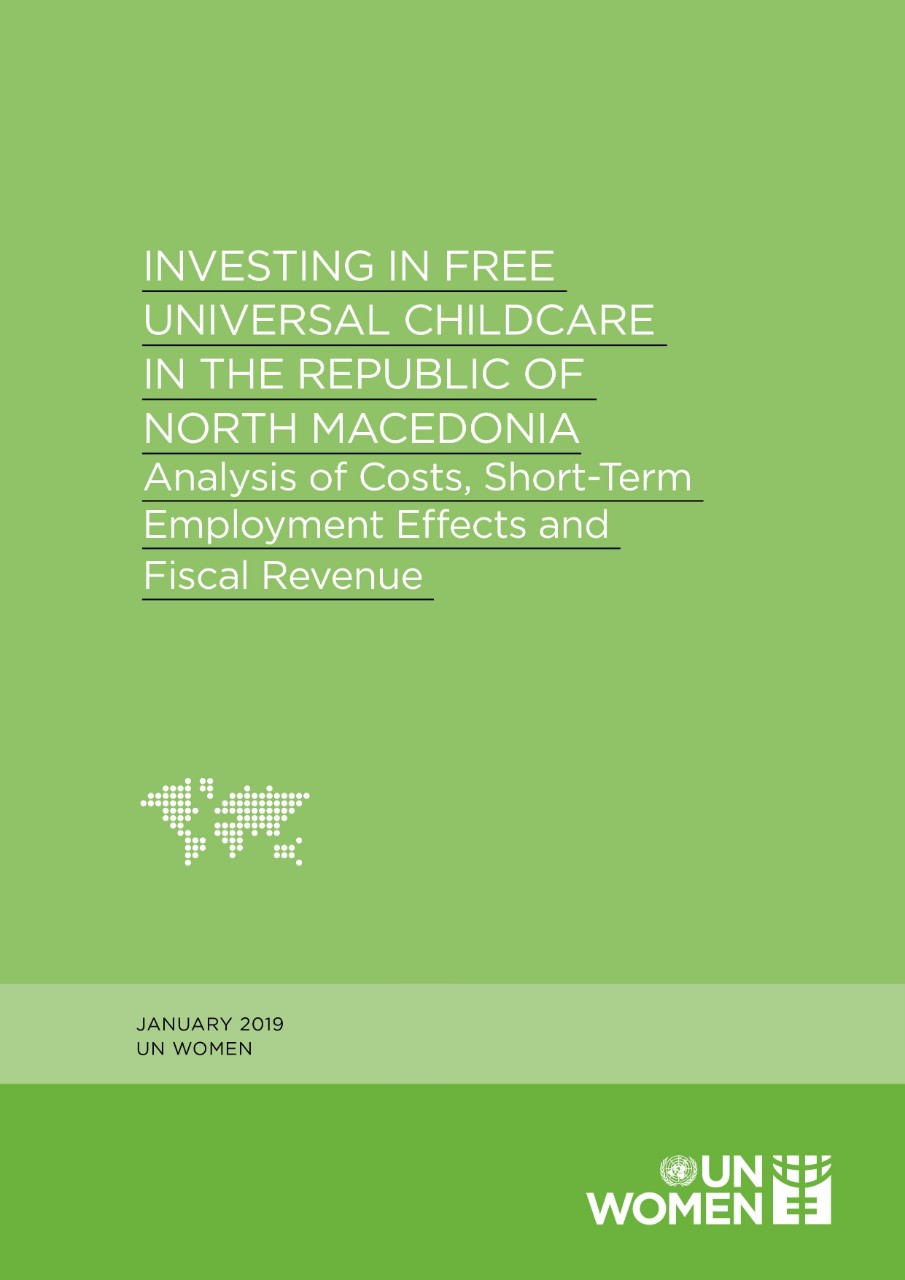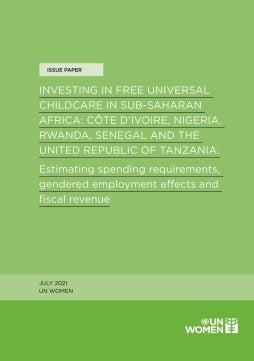Investing in free universal childcare in the Republic of North Macedonia: Analysis of costs, short-term employment effects and fiscal revenue
This paper examines the case for investing in free universal childcare services in order to:
- reduce gender inequality in employment, labour market activity and earnings;
- promote higher human capital through greater enrolment of children in early childhood learning and development; and
- ensure equal access to all children in formal childcare as to foster the life chances and well-being of young children.
The study estimates the employment-generating and fiscal effects of investing in universal childcare in the Republic of North Macedonia. It calculates the total annual costs of investing in childcare services that would increase the enrolment (coverage) rate of the children in formal childcare services to different target levels. The Government has recently pledged to increase the enrolment rate of the children aged 3–6 from 40 per cent to 50 per cent.
In addition, this study experiments with several options for the target enrolment rate, up to the full coverage, using parameters relevant to the Macedonian context.
Additional documents
Bibliographic information
Resource type(s):
Discussion papers
UN Women office publishing:
North Macedonia Programme Presence Office
Number of pages
ii + 32
Publishing entities
United Nations Entity for Gender Equality and the Empowerment of Women (UN Women)
Access to basic services
Economic empowerment
Education
Europe and Central Asia
Governance and national planning
Macroeconomic policies
North Macedonia
Social protection
Universal primary education










